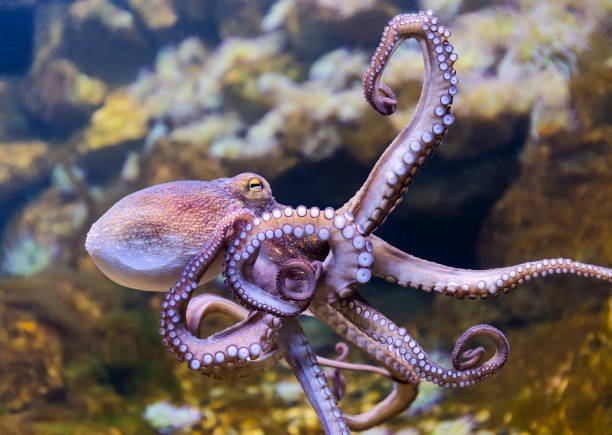Understanding the Remarkable Intelligence of Octopuses
Introduction: Dive into the fascinating world of octopuses, the most intelligent invertebrates known to science. Discover their unique cognitive abilities, social behaviors, and the surprising ways they interact with their environment. Octopuses, members of the cephalopod family, have long intrigued scientists with their exceptional cognitive abilities. Though they lack a traditional vertebrate brain structure, these invertebrates exhibit remarkable problem-solving skills, mastery of mimicry, and an uncanny knack for escape, unparalleled in the animal kingdom. They possess around 500 million neurons, comparable to that of a dog, with two-thirds of these neurons located in their arms, allowing them to touch, taste, and manipulate their environment with impressive dexterity.

Octopuses as Problem Solvers
Scientists have conducted numerous experiments to test the problem-solving abilities of octopuses. These underwater creatures have been observed opening jars to access food inside, navigating mazes, and even using tools — a skill traditionally associated with higher mammals. A famous example is the veined octopus, which has been seen collecting coconut shells to build a mobile home, demonstrating foresight and planning, traits typically associated with human intelligence.
Masters of Camouflage and Mimicry
Octopuses have also mastered the art of camouflage, an evolutionary adaptation that helps them survive in the wild. With the help of special pigment cells in their skin, they can change their color and texture in a matter of seconds to blend into their surroundings. Some species can even mimic other marine animals, like the deadly sea snake or lionfish, to ward off predators — a feat that requires a sophisticated understanding of their environment and the creatures within it.
Social Creatures or Solitary Survivors?
Unlike many invertebrates, some octopuses have exhibited complex social behaviors. The larger Pacific striped octopus, for example, is known for its unusual mating habits, group hunting tactics, and shared dens. However, this social behavior is not universal across all species, with many leading a predominantly solitary existence. This variability adds to the enigma of the octopus, and scientists continue to investigate the factors driving these differences.
The Impact of Climate Change on Octopuses
Despite their resilience and adaptability, octopuses are not immune to the impacts of climate change. Rising sea temperatures, ocean acidification, and habitat loss threaten their survival. While they have a high rate of adaptability, the swift pace of these changes may outstrip their ability to cope, putting many species at risk.
In conclusion, octopuses are fascinating creatures with a level of intelligence that continues to intrigue and surprise the scientific community. As our understanding of these marine invertebrates grows, so too does our appreciation for their unique capabilities and the crucial role they play in our world’s oceans. As such, it becomes increasingly important to consider the impact of our actions on their habitats and survival. Understanding the octopus is not just an academic exercise, but also a critical step in ensuring the health and diversity of our planet’s ecosystems.






